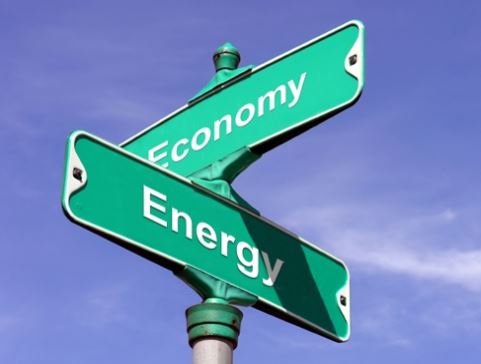Washington marked Earth Day by unveiling two, starkly different visions for America’s immediate, clean energy future.
First up, House Republican Leader Kevin McCarthy (R-CA) introduced the GOP’s “Energy Innovation Agenda,” a climate change plan rooted in conservative principles, limited government and unleashing innovation. Later in the week, President Biden hosted a climate summit of world leaders where he pledged to reduce our country’s emissions by at least 50 percent by 2030.
Two plans: one filled with affordable, rational and reliable solutions that are good for America and for the planet, and one based in fantasy that will drive up energy prices, replace American jobs with empty promises, and hand over our prosperity directly to our adversaries in the Middle East, Russia, and China. (Whose promises to reduce emissions look pretty weak next to the number of coal plants they’re opening.)
For several years, America has led the world in reducing emissions, in good years and bad. But President Biden’s promise will require Americans to cut emissions at a rate that we’ve only ever seen in bad years. To fulfill his promise, we will have to reduce emissions four times more than our average reduction during years of economic growth.
Based on currently available technology, there is simply no way to halve America’s emissions by 2030 without delivering a crushing blow to small businesses, creating record unemployment for years and disproportionately hurting working families and disadvantaged communities. Further, since U.S. fossil fuels are much cleaner than the rest of the world’s, pulling that energy from the global markets simply shifts our exports to other countries with dirtier fuel – pushing global emissions up even as we lower ours.
Sorry, President Biden, but your plan just doesn’t add up.
Luckily there is a formula that will work: Cut energy costs, not energy choices. Export American innovation, not American jobs. Reduce our emissions, not our economy.
This isn’t a novel concept. Our economy has grown even as we have succeeded in reducing emissions because we’ve embraced an all-of-the-above approach that gives consumers more choices while also making energy more affordable.
Now we need to accelerate this trend over the long term, which means we must continue innovating. That’s the goal of Leader McCarthy’s Energy Innovation Agenda, which consists of nearly three dozen bills introduced by Republicans in Congress, all aimed at environmental innovation, clean energy infrastructure, and natural conservation solutions.
But energy innovation will only be possible if America can fix our convoluted permitting process for construction projects. We cannot afford to let bureaucratic red tape stymie new clean energy projects and cleaner, modern replacements for our aging infrastructure. Reforms like the BUILDER Act, a foundational policy of the Energy Innovation Agenda, will dramatically improve the permitting process so that we can quickly reduce our emissions, save taxpayer money, and create “Made in America” jobs.
Greenhouse gas emissions aren’t just a U.S. problem – this is a global threat that will require affordable, reliable solutions that will ultimately work just as well for India as they do for Indiana.
Reintroduced in the U.S. House and Senate last week by an impressive roster of bipartisan sponsors and co-sponsors, the Growing Climate Solutions Act will help American farmers access carbon credits for crops farmed using climate-friendly practices. The domestic emissions cuts would likely be modest, but that isn’t the point. According to the World Bank, while only one percent of the U.S. population works in agriculture, 28 percent of the global population works in agriculture, including 56 percent in the least-developed countries. So, proving such concepts at home is significant because exporting it abroad could have an exponentially greater impact over decades.
Meaningfully addressing climate change is a marathon, not a sprint. Yes, there is an urgent need, but it will require not just trillions of dollars but next-generation technology and innovative practices we haven’t perfected yet. Most importantly, it will depend on buy-in from American consumers, and eventually, people around the world.
Such goodwill is best gained incrementally, through thoughtful measures like the GOP put forth last week – not by imposing sudden, arbitrary goals that will be economically painful to achieve. We must be mindful that overreaching or unrealistic targets may do more harm than good as our commitments could be viewed with skepticism abroad while causing lasting economic damage at home.
This article originally appeared at Real Clear Energy
